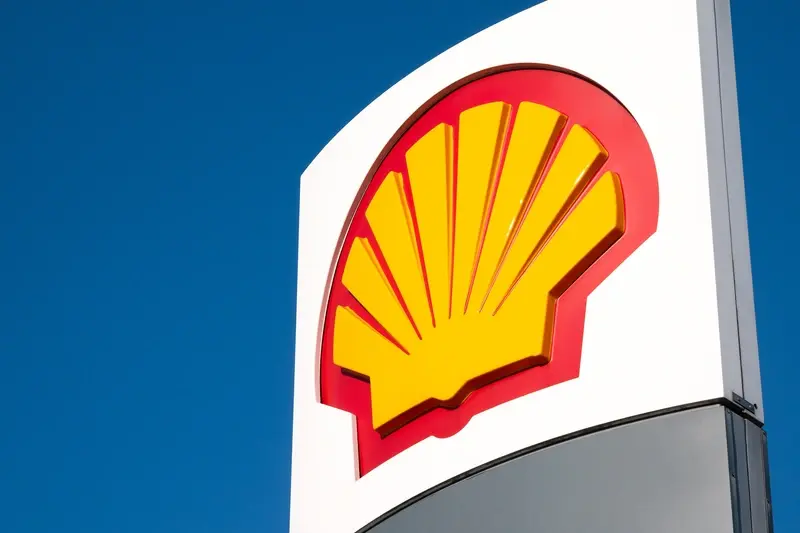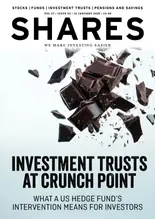
Stock prices in London opened mixed on Thursday but Shell and BP rose; ahead of the Bank of England’s first interest rate decision of 2024.
The FTSE 100 index opened up 16.35 points, 0.2%, at 7,646.92. The FTSE 250 was down 71.53 points, 0.4%, at 19,286.42, and the AIM All-Share was up 0.030 of a points at 754.78 .
The Cboe UK 100 was up 0.1% at 764.57, the Cboe UK 250 was down 0.5% at 16,747.37, and the Cboe Small Companies was down 0.1% at 14,751.89.
In European equities on Thursday, the CAC 40 in Paris was down 0.6%, while the DAX 40 in Frankfurt was down 0.2%.
New York stocks took a hit on Wednesday, after Fed Chair Jerome Powell derailed market hopes for a March cut in interest rates.
The Dow Jones Industrial Average closed down 0.8%, the S&P 500 down 1.6% and the Nasdaq Composite down 2.2%.
At the conclusion of its two-day meeting, the Federal Open Market Committee unanimously voted not to raise the fed funds rate, for the fourth meeting in a row. The key rate is targeted in a range between 5.25%-5.5%, the highest in nearly 23 years.
Speaking after the vote, Powell said a rate cut in March, is not the ‘most likely case.’
‘I don’t think it’s likely that the committee will reach a level of confidence by the time of the March meeting, to identify that March is the time to do that,’ Powell told reporters at a press conference.
For now, focus has moved onto the Bank of England.
The BoE will make its first interest rate decision of the year on Thursday at 1200 GMT. Alongside the decision, there will also be the BoE’s latest monetary policy report, with economic projections, as well as a press conference with Governor Andrew Bailey half an hour later.
Like the Fed and the European Central Bank, the BoE is expected to keep rates unchanged and the focus will be on messages about future policy decisions.
‘British policymakers will likely push back on early rate cut expectations after the latest inflation numbers in the UK revealed a mini U-turn in easing price dynamics. But Brits are expected to deliver a brighter outlook for their economy, lower inflation forecasts and open the door for rate cuts later this year,’ said Ipek Ozkardeskaya at Swissquote Bank.
The pound was quoted at $1.2653 early on Thursday in London, down compared to $1.2715 at the equities close on Wednesday. The euro stood at $1.0792, lower against $1.0846. Against the yen, the dollar was trading at JP¥146.85, higher compared to JP¥146.29.
In the FTSE 100, Shell rose 1.6%.
In the fourth quarter of 2023, the oil firm’s pretax profit plunged to $1.64 billion from $16.44 billion a year earlier. Total revenue dropped 21% to $80.13 billion from $101.20 billion.
Despite this, Shell upped its quarterly dividend to $0.34 from $0.29. Shell also said it has completed its $3.5 billion share buyback and will now launch a new $3.5 billion share buyback programme.
‘Shell delivered another quarter of strong performance, concluding a year in which we made good progress across the targets outlined at our Capital Markets Day. As we enter 2024 we are continuing to simplify our organisation with a focus on delivering more value with less emissions,’ said Chief Executive Wael Sawan.
BP was up 0.6%, in a positive read across.
BT rose 3.4%.
BT said it is on track for full-year financial outlook, after growth in revenue and Ebitda during its third quarter ended December 31.
Third quarter adjusted revenue rose 3% annually to £5.34 billion from re-presented revenue of £5.21 billion. Adjusted Ebitda edged up 1% to £2.03 billion from re-represented £2.01 billion.
In the FTSE 250, AG Barr rose 1.8%.
AG Barr said that in its financial year ended January 28, revenue jumped 26% to £400 million from £317.6 million in the 52 weeks ended January 29, 2023. Adjusted pretax profit is now expected to be about £49.5 million, up 14% on the prior year’s result of £43.5 million and slightly ahead of previous market expectations.
AG Barr also named Euan Sutherland as its new chief executive officer, effective from May 1.
As announced in August last year, Roger White will step down from the board at the end of April 2024 and will remain available until the end of July to support a smooth leadership transition as planned.
In China, the Shanghai Composite closed down 0.6%, while the Hang Seng index in Hong Kong was up 0.5%.
China’s manufacturing sector continued to grow at the beginning of 2024, survey data from S&P Global showed on Thursday.
The Caixin purchasing managers’ index read 50.8 points in January, unchanged from December, once again coming in slightly above the 50-point no-change mark, which indicates a modest expansion.
The score was better than the official reading on the sector that was released on Wednesday. The official manufacturing PMI, compiled by China’s National Bureau of Statistics, was reported at 49.2 points, suggesting continued contraction in the factory sector.
In Japan on Thursday, the Nikkei 225 index in Tokyo was down 0.8%.
The au Jibun Bank manufacturing purchasing managers’ index rose to 48.0 points in January, from 47.9 in December, and remained unchanged from the flash estimate. Getting closer to the 50-point no-change mark, it indicates a decelerating downturn in Japanese factories.
The S&P/ASX 200 in Sydney closed down 1.2%.
Still to come on Thursday’s economic calendar, there is a UK manufacturing PMI at 0930 GMT. There is also a eurozone consumer price inflation reading, as well as unemployment data, at 1000 GMT.
Brent oil was quoted at $80.66 a barrel early in London on Thursday, down from $81.03 late Wednesday. Gold was quoted at $2,042.55 an ounce, lower against $2,050.57.
Copyright 2024 Alliance News Ltd. All Rights Reserved.




